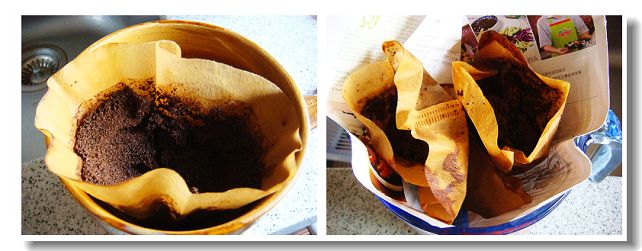The antioxidant effect of coffee grounds is 500 times that of vitamin C.

The coffee industry plays a major role in the global economy, and its impact on the environment is also crucial. More than 2 billion tons of coffee by-products are produced worldwide each year. When coffee beans are roasted and dried, the husk (the skin of coffee beans) is usually removed during processing, while coffee grounds are discarded directly. Conventional wisdom holds that these by-products, coffee grounds and coffee husks, do not have much practical value and applications, and coffee grounds can sometimes be homemade as exfoliating glycolic acid (Exfoliants) or as a cleaning product.
Recently, in a research paper published in the international journal LWT-Food Science and Technology, scientists from the University of Granada began research to determine which coffee by-products can be recycled as nutrients. In the paper, the researchers clarified that coffee grounds and coffee husks have strong antioxidant and antibacterial properties because they are rich in fiber and phenols. Indeed, the findings also reveal that coffee grounds are more than 500 times more antioxidant than vitamin C, so using coffee grounds as a functional food will bring huge health benefits.
Important Notice :
前街咖啡 FrontStreet Coffee has moved to new addredd:
FrontStreet Coffee Address: 315,Donghua East Road,GuangZhou
Tel:020 38364473
- Prev

Share the coffee roasting technology and talk about the smoke feeling of coffee roasting.
Recently, I heard a saying: coffee is roasted, but during the bean-growing period, there is a strong sense of smoke. What I want to say is that the sense of smoke can not be lost by raising beans. There are two situations in which the sense of smoke can be produced. First, the flavor of coffee itself is mainly smoky, and there is a lot of smoke in the flavor of this bean. Second, it is caused by defects in baking, that is, it is difficult to make exhaust and firepower.
- Next
Want to know how to get a cup of decaf?
Coffee is one of the three biggest drinks in the world, and it is loved by many people. The most distinctive ingredient in coffee is caffeine, but not everyone likes it. In terms of taste, it is the main source of bitterness of coffee; functionally, it is a nerve stimulant that can keep people in a state of excitement and affect sleep. In addition to caffeine, coffee contains thousands of ingredients, which can form unique
Related
- Can lightly roasted coffee beans be used to extract espresso? How finely should you grind high-quality coffee beans to make Italian latte?
- What is the difference between the world's top rose summer coffee and Yejia Shefi? What are the flavor characteristics of Yega Shefi coffee and Panama rose summer?
- The ceremony is full! Starbucks starts to cut the ribbon at a complimentary coffee station?!
- A whole Michelin meal?! Lucky launches the new "Small Butter Apple Crispy Latte"
- Three tips for adjusting espresso on rainy days! Quickly find the right water temperature, powder, and grinding ratio for espresso!
- How much hot water does it take to brew hanging ear coffee? How does it taste best? Can hot water from the water dispenser be used to make ear drip coffee?
- What grade does Jamaica Blue Mountain No. 1 coffee belong to and how to drink it better? What is the highest grade of Blue Mountain coffee for coffee aristocrats?
- What are the flavor characteristics of the world-famous coffee Blue Mountain No. 1 Golden Mantelin? What are the characteristics of deep-roasted bitter coffee?
- Can I make coffee a second time in an Italian hand-brewed mocha pot? Why can't coffee be brewed several times like tea leaves?
- Hand-brewed coffee flows with a knife and a tornado. How to brew it? What is the proportion of grinding water and water temperature divided into?

